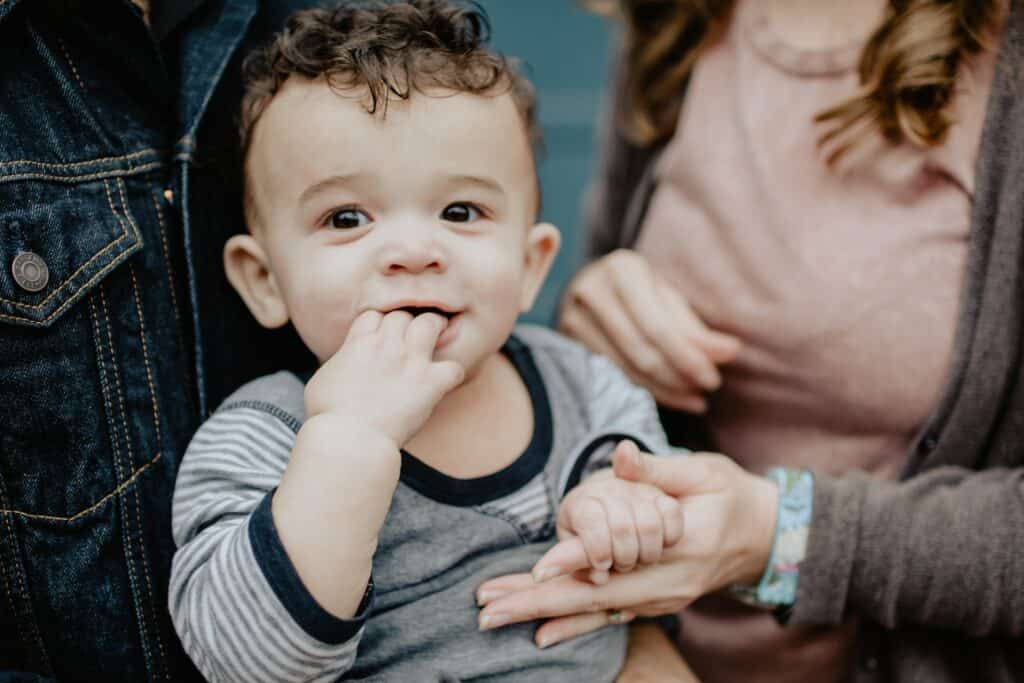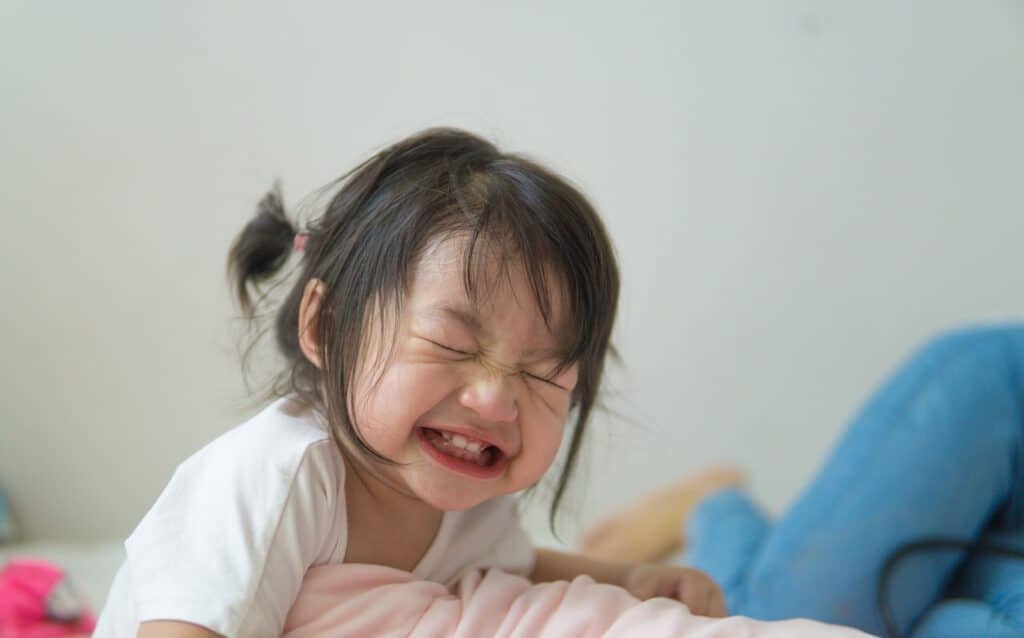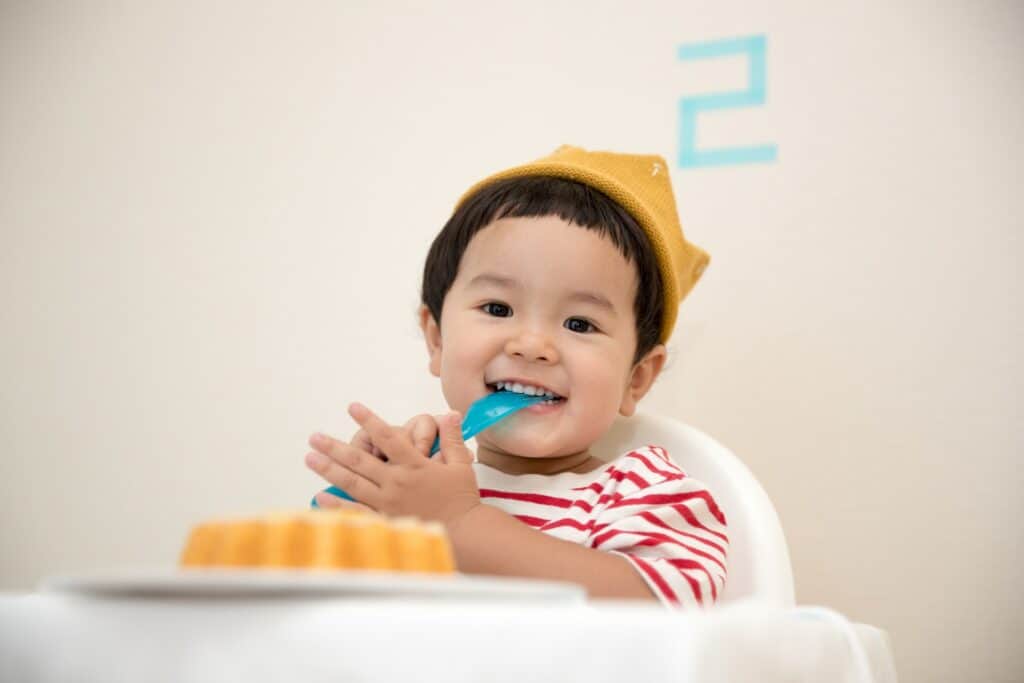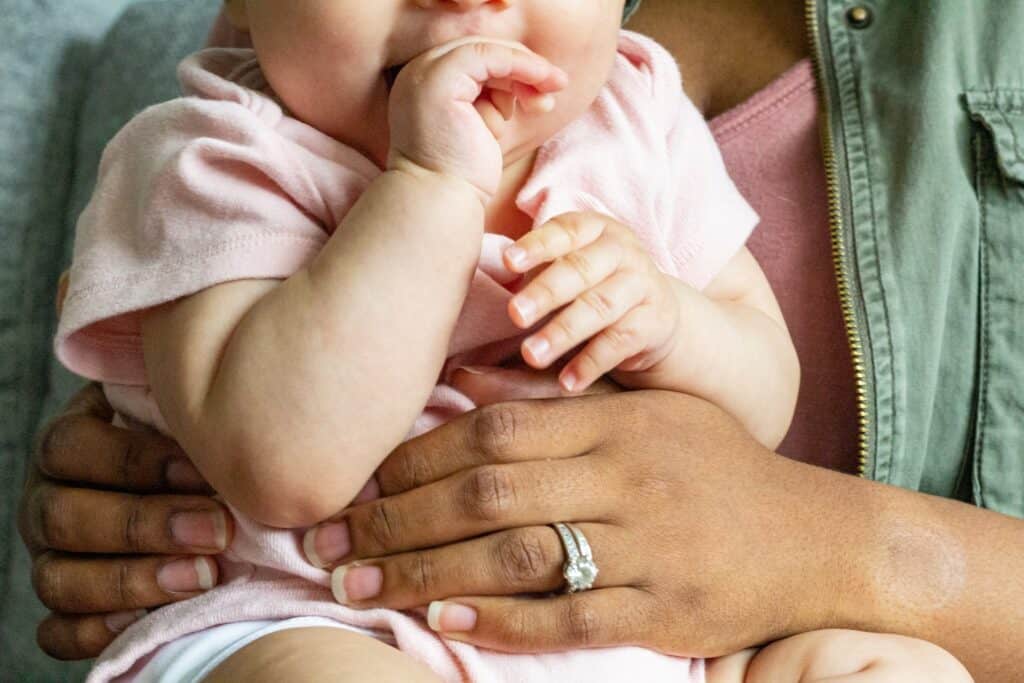Teeth grinding, also known as bruxism, is a common problem among toddlers. It can occur during the day or at night, and can cause discomfort and damage to the teeth. Parents often wonder how they can stop their toddler from grinding their teeth and prevent any long-term damage.
Understanding the causes of teeth grinding in toddlers is the first step to addressing the issue. While the exact cause is not always known, it is often related to stress, anxiety, and changes in the child’s environment. Identifying any underlying causes can help parents address the issue and find ways to prevent it from happening in the future.
Preventive measures can also be taken to help stop a toddler from grinding their teeth. These can include establishing a relaxing bedtime routine, avoiding stimulating activities before bedtime, and providing a comfortable sleeping environment. In some cases, seeking medical help may be necessary to address the issue and prevent any long-term damage to the teeth.
Key Takeaways
- Understanding the causes of teeth grinding in toddlers is important in addressing the issue.
- Preventive measures such as establishing a relaxing bedtime routine can help stop a toddler from grinding their teeth.
- Seeking medical help may be necessary in some cases to prevent long-term damage to the teeth.
Understanding Teeth Grinding in Toddlers
Teeth grinding, also known as bruxism, is a common problem among children, especially toddlers. It is the act of grinding or clenching the teeth, often accompanied by a sound that can be heard by others. While it is not always a cause for concern, it can be a sign of an underlying issue that needs attention.
In toddlers, teeth grinding is often due to the development of their baby teeth. As their teeth come in, they may experience discomfort or itching in their gums, which can lead to grinding. Additionally, toddlers may grind their teeth as a way to cope with stress or anxiety, or simply as a habit.
It is important to note that not all teeth grinding in toddlers is a cause for concern. However, if it is accompanied by other symptoms such as jaw pain, headaches, or worn teeth, it may be necessary to seek medical attention.
Parents can help their toddlers by identifying potential triggers for teeth grinding and addressing them. For example, if a toddler is stressed or anxious, parents can try to alleviate the stress or anxiety through relaxation techniques or a calming environment. Additionally, ensuring that their toddler has a regular sleep schedule and is getting enough rest can also help.
If teeth grinding persists or is causing discomfort, a dentist may recommend a mouth guard to protect the teeth and prevent further damage. It is important to consult with a healthcare professional before taking any action to address teeth grinding in toddlers.
Causes of Teeth Grinding
Teeth grinding, also known as bruxism, is a common issue among toddlers. It can be caused by various physical and psychological factors. In this section, we will discuss some of the common causes of teeth grinding in toddlers.

1. Physical Factors
Physical factors that can contribute to teeth grinding in toddlers include teething, sleep apnea, misaligned teeth, and ear infections. Teething is a common cause of teeth grinding in toddlers. When new teeth are coming in, toddlers may grind their teeth to relieve the discomfort. Sleep apnea, which causes breathing difficulties during sleep, can also lead to teeth grinding. Misaligned teeth and ear infections can also cause discomfort that leads to teeth grinding.
2. Psychological Factors
Psychological factors that can contribute to teeth grinding in toddlers include stress, anxiety, hyperactivity, and medical conditions like cerebral palsy and allergies. Stress and anxiety can cause tension in the muscles, including those in the jaw, leading to teeth grinding. Hyperactivity can also cause tension in the muscles and lead to teeth grinding. Medical conditions like cerebral palsy and allergies can also contribute to teeth grinding in toddlers.
It’s important to note that teeth grinding in toddlers can also be a result of sleep bruxism, a condition where the child grinds their teeth while sleeping, or TMJ, a condition that affects the jaw joint. In some cases, medication or certain types of food can also contribute to teeth grinding.
Overall, identifying the cause of teeth grinding in toddlers can be challenging, but it’s important to address the issue to prevent long-term damage to the teeth and jaw.
Identifying the Symptoms
Identifying the symptoms of teeth grinding in toddlers can be challenging as they may not be able to communicate their discomfort. However, there are some signs that parents can look out for, such as:
- Jaw pain: If your toddler complains of jaw pain or discomfort, it could be a sign that they are grinding their teeth.
- Headaches: Frequent headaches, especially in the morning, can be a symptom of teeth grinding.
- Sensitivity: If your toddler complains of sensitivity in their teeth or gums, it could be due to grinding.
- Sleep disorder: Teeth grinding can disrupt your toddler’s sleep, causing them to wake up frequently during the night or experience restless sleep.
- Grinding noises: If you hear grinding or clenching noises coming from your toddler’s mouth while they sleep, it’s a clear indication that they are grinding their teeth.
- Sore jaw: A sore jaw or facial muscles can be a sign that your toddler is grinding their teeth.
- Earache: Teeth grinding can cause pain in the ears or earaches.
It’s important to note that not all toddlers who grind their teeth will experience these symptoms, and some children may not show any signs at all. Therefore, regular dental check-ups are crucial to identify any signs of teeth grinding and prevent any potential dental problems.
Effects of Teeth Grinding
Teeth grinding, also known as bruxism, can have several negative effects on toddlers. Here are some of the potential consequences of teeth grinding:

1. Dental Damage
Teeth grinding can cause significant damage to a toddler’s teeth. Grinding can wear down the enamel on the teeth, making them more susceptible to decay and cavities. In severe cases, teeth grinding can even result in chipped or broken teeth.
2. Sensitive Teeth
Teeth grinding can also lead to increased tooth sensitivity. The constant grinding can wear down the protective layer of enamel, exposing the more sensitive dentin layer underneath. This can cause discomfort or pain when eating or drinking hot or cold foods and beverages.
3. Jaw Muscles
Teeth grinding can also have an impact on a toddler’s jaw muscles. The constant clenching and grinding can cause the muscles to become sore and fatigued. This can lead to headaches or even migraines.
4. Permanent Teeth
If left untreated, teeth grinding can also affect a toddler’s permanent teeth. The grinding can cause damage to the developing teeth, potentially leading to misalignment or other dental issues later on.
5. Teeth Clenching
In addition to grinding, some toddlers may also clench their teeth. This can put additional stress on the jaw muscles and teeth, leading to similar negative effects as grinding.
Overall, it is important to address teeth grinding in toddlers to prevent potential dental and health issues.
Preventive Measures
Preventing teeth grinding in toddlers can be challenging, but there are several measures that parents can take to help their child reduce or stop grinding their teeth. These measures include lifestyle changes and dental solutions.

Lifestyle Changes
Routine
Establishing a regular routine for your toddler can help them relax and reduce stress, which may lessen the likelihood of teeth grinding. This routine can include a consistent bedtime, naptime, and mealtime.
Chewing
Encouraging your toddler to chew on crunchy foods such as carrots or apples can help strengthen their jaw muscles and reduce the urge to grind their teeth.
Exercise
Physical activity can help reduce stress and tension in your toddler’s body, which may help reduce teeth grinding. Encourage your child to engage in age-appropriate exercise such as running, jumping, or playing outside.
Caffeine
Avoid giving your toddler caffeinated beverages such as soda or tea, as caffeine can increase the likelihood of teeth grinding.
Chewing Gum
Chewing gum can help strengthen jaw muscles and reduce the urge to grind teeth. However, make sure to choose sugar-free gum and supervise your child while they chew.
Dental Solutions
Mouth Guard
A custom-fitted mouth guard can be worn at night to protect your toddler’s teeth from grinding. This is a safe and effective dental solution that can help prevent tooth damage.
Jaw Clenching
If your toddler is clenching their jaw during the day, a dentist may recommend a daytime mouth guard or a splint to help reduce tension in the jaw muscles.
Overall, preventing teeth grinding in toddlers requires a combination of lifestyle changes and dental solutions. By implementing these measures, parents can help their child reduce or stop grinding their teeth and maintain good oral health.
When to Seek Medical Help
If a toddler continues to grind their teeth despite trying various interventions, it may be time to seek medical help. Here are some instances when it may be necessary to consult a healthcare professional:

- If the toddler’s teeth grinding is causing pain or discomfort, it is important to schedule a dental appointment. The dentist can examine the child’s teeth and determine if any damage has been done.
- If the toddler’s teeth grinding is affecting their sleep, it may be necessary to consult a pediatrician or a sleep specialist. The American Academy of Sleep Medicine notes that sleep-related bruxism can be a sign of other sleep disorders, such as sleep apnea.
- If the toddler snores loudly or has difficulty breathing during sleep, it may be a sign of enlarged tonsils or adenoids. In this case, it is important to consult an ENT specialist.
- If the toddler is taking stimulant medications, such as those used to treat ADHD, teeth grinding may be a side effect. In this case, it is important to consult with the prescribing pediatrician.
- If teeth grinding persists in male children or school-age children, it may be necessary to consult a pediatric dentist or a pediatrician to rule out any underlying medical conditions.
- If teeth grinding is observed in infants, it is important to consult with a pediatrician to rule out any underlying medical conditions.
In general, if teeth grinding persists despite trying various interventions, it is important to seek medical help to rule out any underlying medical conditions and ensure the toddler’s overall health and wellbeing.
Frequently Asked Questions
What causes toddlers to grind their teeth at night?
The exact cause of teeth grinding in toddlers is not known. However, some common factors that may contribute to this habit include stress, anxiety, malocclusion, and sleep disorders.
How can I help my toddler stop grinding their teeth?
There are several ways to help your toddler stop grinding their teeth. You can try to reduce their stress and anxiety levels, establish a regular bedtime routine, and encourage them to relax before bedtime. Additionally, you can provide your toddler with a soft toy or blanket to comfort them while they sleep.
Is it harmful for toddlers to grind their teeth?
In most cases, teeth grinding in toddlers is not harmful. However, if the habit persists for a long time, it may cause damage to their teeth, jaw, and gums. It can also lead to headaches, earaches, and facial pain.
What are some natural remedies to stop toddler teeth grinding?
Some natural remedies that may help stop toddler teeth grinding include giving them a warm bath before bedtime, playing relaxing music, and massaging their jaw muscles. You can also try giving them chamomile tea or a warm glass of milk to help them relax.
At what age do toddlers typically stop grinding their teeth?
Most toddlers stop grinding their teeth by the age of six. However, some may continue the habit into their teenage years or even adulthood.
Should I take my toddler to the dentist if they grind their teeth?
Yes, you should take your toddler to the dentist if they grind their teeth. The dentist can examine your toddler’s teeth and jaw to determine if there are any underlying issues that may be causing the habit. They can also recommend a mouthguard or other treatment options to help your toddler stop grinding their teeth.

Iesha is a loving mother of 2 beautiful children. She’s an active parent who enjoys indoor and outdoor adventures with her family. Her mission is to share practical and realistic parenting advice to help the parenting community becoming stronger.
